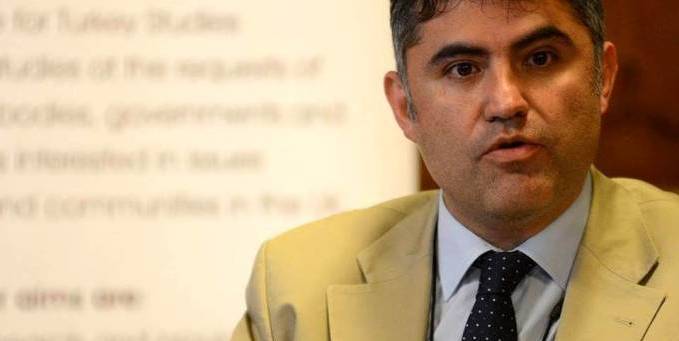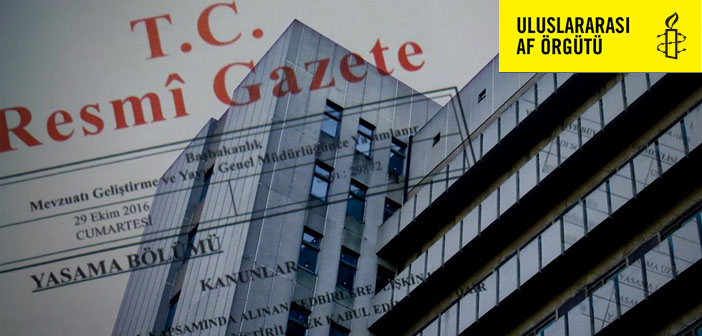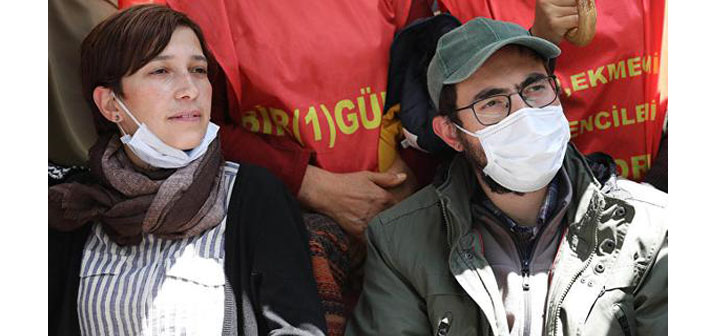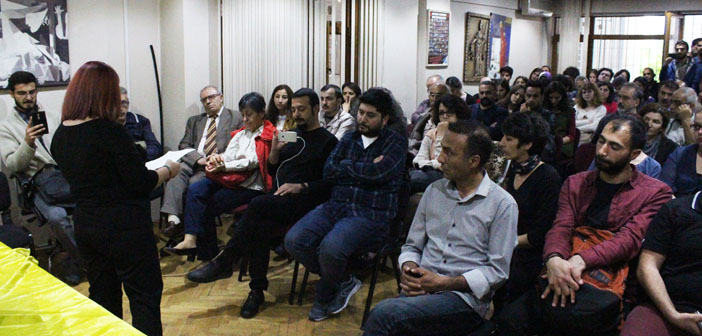Declaration of the state of emergency in Turkey caused debates both in Turkey and other countries. We talked to Assistant Prof. Kerem Altıparmak about the recent developments and ongoing debates.
After
the coup attempt on July 15, the government declared state of
emergency for 3 months. The statements from the government indicates
that it might be extended. Declaration of the state of
emergency in Turkey caused debates both in Turkey and other
countries.
The government emphasizes that the state of emergency is necessary in a time like this. And many people agree. What kind of instruments does the state of emergency provide to the government? I mean, what can government do that it cannot do without the state of emergency?
Many things. First of all, they can legislate decrees without the approval of the parliament. This amounts to transferring the legislative power to the executive authority very quickly. Moreover, according to the Constitutional Law, no one can claim that those decrees violate the Constitutional Law. And of course, rights and liberties can be regulated with those decrees. For instance, they can extend the maximum detention period or suspend people.
This is very advantageous for the government.
Do you think that state of emergency is absolutely necessary in a time like this?
This is not a simple issue. In fact, the criterion for declaring state of emergency is the following: the state shouldn't consider the gravity of what happened; rather, it should consider what might happen afterwards and the repercussions of what happened and decide whether extra precautions are needed. I don't know whether precautions like detention and arrest are carried out properly, but given the figures and targeted groups, it is obviously an usual situation. I think that the risk is not about the state of emergency itself, but rather the way the state of emergency is practiced.
With the first decree, the maximum period of detention has extended to 30 days and many institutions are closed down. What will these developments, especially 30 days of detention, lead to?
You can do about anything within 30 days. Thus, there should be some guarantees in order to prevent the abuse of this period. In terms of torture and ill-treatment, there are three basic guarantees before standing trial: access to lawyer, physician and family. However, they shouldn't be only on paper. For instance, the physicians should examine the suspects in accordance with Istanbul Protocol. Given the number of detained people, we are not sure whether they are doing this duly. We might assume that the period of detention is extended because of the complexity of the investigation. However, this doesn't mean that you can keep each suspect for 30 days.
The images of the suspects made me really concerned. And for me, the statements of the Minister of Justice aren't convincing. We should repeat that torture is absolutely prohibited, even for putschists.
How will these decisions be supervised in terms of constitution? Does the state of emergency give limitless power to the state, or will the decisions be supervised constitutionally at some point?
State of emergency cannot be interpreted as the rule of unlawfulness. First of all, state of emergency decrees cannot regulate anything outside the state of emergency. In this case, the Constitutional Court should annul such clauses pursuant to its own practices. It think that there are problems with some clauses of the first decree, since they will affect the the period after the state of emergency. For instance, I can understand that some people are suspended during the state of emergency. However, they cannot be laid off upon the state of emergency decree without using their right to defence.
On the other hand, the decrees has two other limitations in terms of access to justice. First of all, when a lawsuit against the administration is filed, there would be no decision of stay of execution. Secondly, the people who make decisions and take actions as part of the state of emergency decree won't have administrative, financial or criminal liability about their actions related to their duty. However, such a person might appeal to the Constitutional Court and ECHR claiming that his rights are violated. This clause cannot prevent such an appeal.
European Convention on Human Rights has been discussed as well. Deputy Prime Minister Kurtulmuş said that it is “suspended”. On the other hand, some people note that this is not the case.
Article 15 to ECHR is about the state of emergency: “Article 15 allows contracting states to derogate from certain rights guaranteed by the Convention in time of 'war or other public emergency threatening the life of the nation'. Permissible derogations under article 15 must meet three substantive conditions: (1) there must be a public emergency threatening the life of the nation; (2) any measures taken in response must be 'strictly required by the exigencies of the situation', and (3) the measures taken in response to it, must be in compliance with a state's other obligations under international law."
However, declaration of the state of emergency is not enough in terms of international law, Secretary General of the Council of Europe must be officially informed. It is also stated in Article 15: “There must be some formal announcement of the derogation and notice of the derogation, any measures adopted under it, and the ending of the derogation must be communicated to the Secretary-General of the Council of Europe.”
What about this issue of suspension?
It is a mistranslation into Turkish; it is not suspension, but derogation.
However, this doesn't mean that the Convention won't be implemented at all during the state of emergency. The government, in its announcement to the secretary-general, will inform which rights will be restricted for how long and on which grounds. Article 2 to ECHR states: “Signatory states to the Convention can only derogate from the rights contained in Article 2 for deaths which result from lawful acts of war." So, by announcing the state of emergency, death penalty cannot be brought back, killings outside the context of clashes cannot be justified, torture and ill-treatment cannot be allowed and there cannot be retrospective punishment.
There are other constraints. According to ECHR practices, restriction of rights which would render absolute prohibitions invalid cannot be allowed. For instance, as Aksoy v. Turkey case showed, restricting the right of access to a lawyer or a physician for 14 days cannot be made compatible to the Convention by such an announcement. Similarly, a person claiming that his rights are violated during the state of emergency can appeal to ECHR. As you know, the most serious decisions of violation of rights against Turkey are about the violations happened in southeastern Turkey during the state of emergency in '90s.





